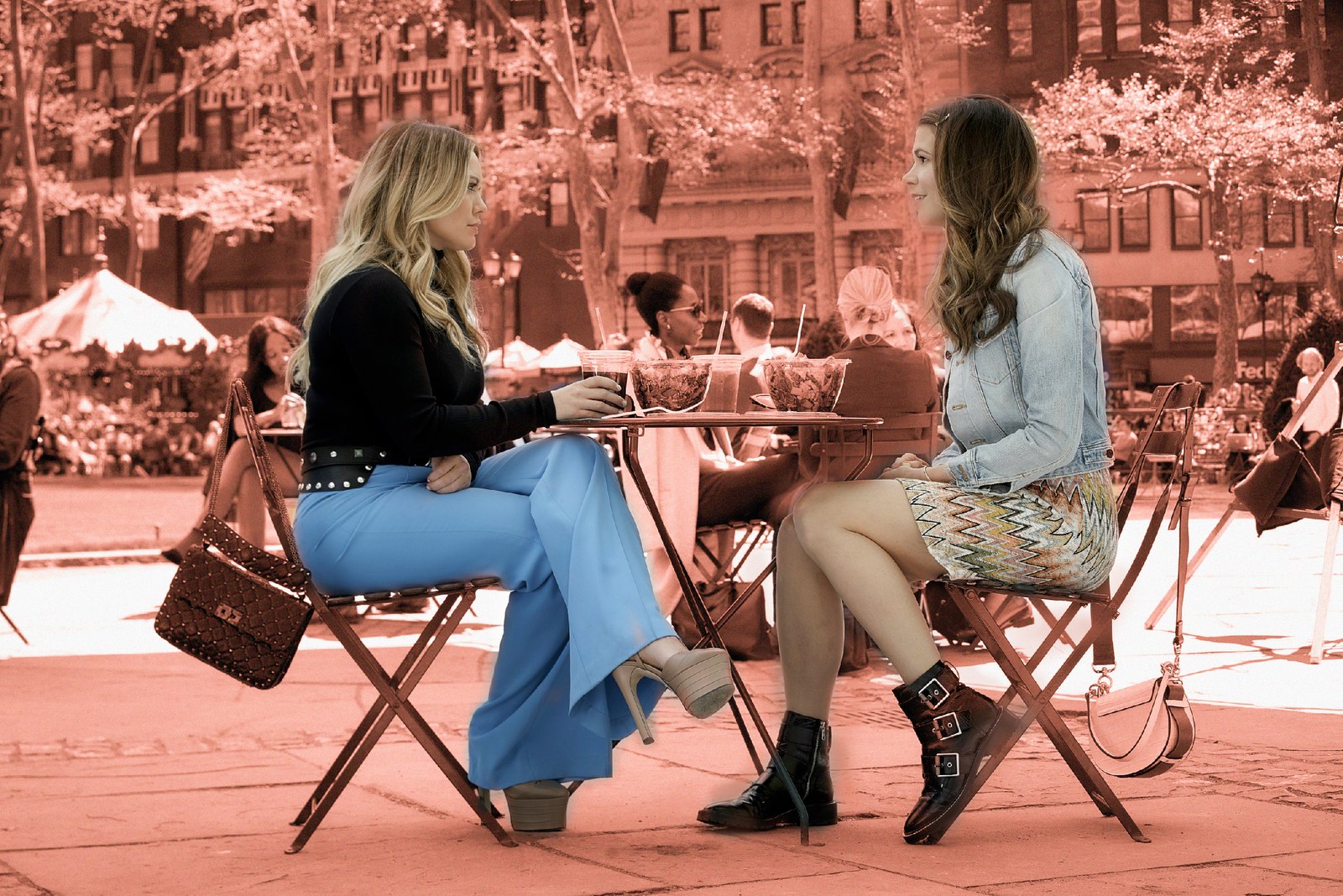Somehow Younger Has Become the Most Realistic Show About Careers on TV

When I tell her how much I love Kelsey and Quinn’s power clashes, she says, “I was worried about that at first. We try not to have women tearing down other women in the show. But Laura talked about how she wanted to play Quinn: just like a man. [Her fights with Kelsey] aren’t personal. It’s just: ‘I want what I want, and yes—I’ll screw you over to get it.’”
Kelsey’s aura is a little different; Zicklin describes her, in the hands of Duff, as “tough and driven but vulnerable and real.” Which leads me to the other thing I love about this season: Kelsey isn’t killing it. She’s functioning, as publisher, a lot like someone who was an assistant five years ago. When Quinn steamrolls Kelsey over the timing of her book’s release, Kelsey curses herself for failing to stand up to Quinn. She manages, after, to get a handle on her investor, but—I’ll avoid spoilers for those a few episodes behind—Kelsey’s end-of-season journey is far from smooth glass-ceiling shattering.
It’s exactly this—the failing and fuming—that guarantees Younger a special place in career-girl canon. Too much TV that purports to be about driven women breezes past the actual drive. Sometimes we meet women at the top—think every Sex and the City knockoff, like Cashmere Mafia and Lipstick Jungle—and get to marvel at their corner offices, lethally expensive coats, and icy one-liners. Sometimes we meet women at the bottom—think Girls, with all its short-lived jobs and endless introspection—and get to laugh at their chronic missteps, even as we scratch our heads over who or what is financing their hapless existence.
The characters on Younger are something rare on TV: the women in between. Their office isn’t exclusively a backdrop for gossiping about their love lives. They actually have to go to work and solve the problems waiting for them there. Liza had to lie her way around stereotypes to fit the publishing landscape. Diana has fretted over whether her senior status puts her at risk for restructuring. Maggie has dealt with being dropped by her gallery. Lauren went from being employed full-time to striking out on her own. They advance, hit obstacles, adapt.
And because Younger has paced itself thoughtfully, making each woman earn the next blurb on her resumé, I’m invested in them a way I couldn’t be if I’d met them at the unearned tops of their games. Because of its slow burn and its daring push into publishing wonkiness, Younger’s current setup actually reminds me most of Mad Men: a small circle of ambitious people jockeying for power, enduring mergers and triumphs and setbacks. The only difference is that whenever a woman on Younger succeeds, I feel like taking her out for a drink; whereas all the dudes on Mad Men give me the urge to move across the bar.
